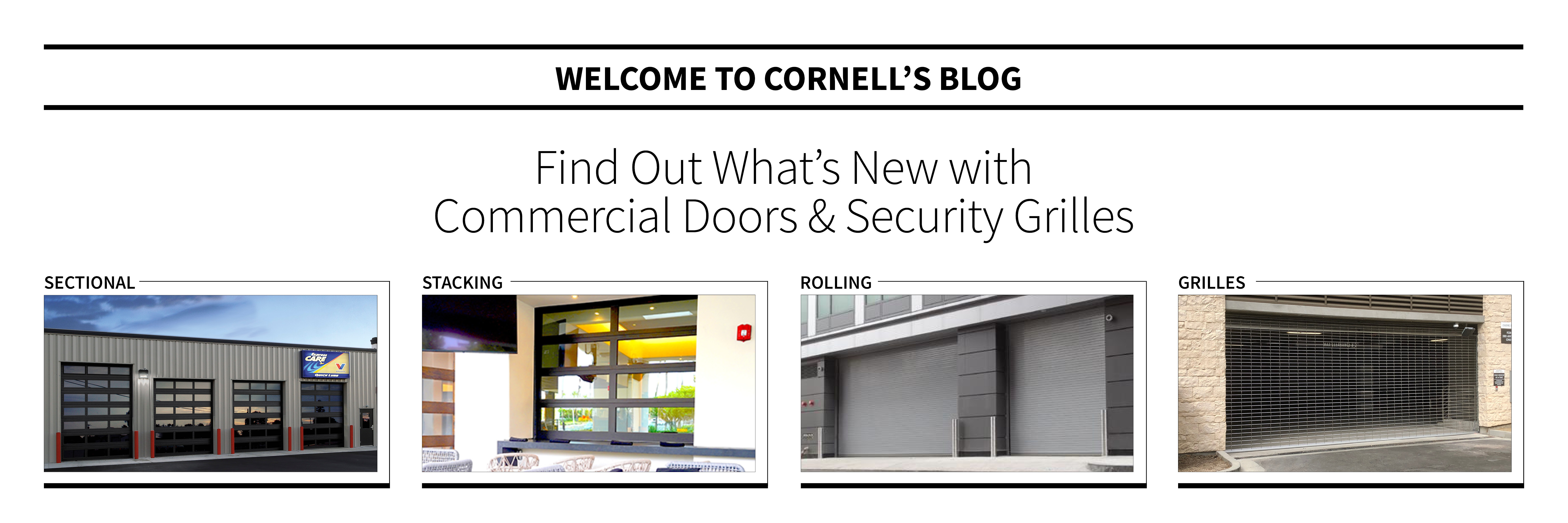

Cornell Commercial Rolling Doors and Security Grilles Blog
When it comes to Overhead Rolling Doors and Grilles, we are the experts in innovative door solutions!
Subscribe
Get updates on new blog posts to your inbox!
How to Ventilate Your Building for Safety | Part 1
Ventilation in Parking Garages
We all know the importance of ventilation in our homes and buildings. It’s why harsh chemical cleaners come with labels reminding us to use them in a well-ventilated area. It’s also why building codes were established, especially for structures like parking garages where carbon monoxide can build up to dangerous levels.
Because carbon monoxide (CO) is an odorless, colorless gas found in fumes produced any time fuel is burned (which for parking garages, means it happens when cars, trucks, and small engines run or idle), taking preemptive actions to reduce the amount of CO in your parking garage with proper ventilation and sensors is a smart move.
Ventilation helps to moderate internal temperatures, creates air movement to improve comfort of occupants, and most importantly, reduces the accumulation of moisture, odors, and other gases that can build up during occupied periods, according to Designing Buildings.
In parking garages, ventilation means more than simply opening a window like we might do at home to bring fresh air inside. Instead, the use of exhaust fans, the design of the structure, and other precautions are integrated to ventilate and monitor harmful air pollutants.
Along with the design of the parking garage, the materials used within and on them can assist in protecting patrons from carbon monoxide poisoning. Materials, sensors, and exhaust fans used and spacing required depends on each parking garage and whether it’s considered open or closed.
If a parking garage is not naturally ventilated and open according to the 2015 International Building Code, it must be mechanically ventilated to allow for proper airflow and circulation. Luckily, you can prepare for what kind of ventilation your parking garage needs by understanding the difference up front, doing your research, and understanding your options.
For example, rolling security grilles are an ideal solution to securing parking garages, especially if they lock, and allow for visibility, ventilation, and air flow throughout the facility. Architectural door and grille manufacturer CornellCookson has offered a range of security grilles since the 1970s, providing solutions to protect parking garages from criminals and occupants from carbon monoxide.
The hazards of an unventilated space can be harmful or even deadly. If you’re at home using cleaning products or in your garage with exhaust fumes, you know to leave doors and windows open and fans running to remove toxic fumes and bring in fresh air.
To learn more about how you can improve ventilation in your parking garage with our security grilles, contact us at 833.958.1273.
Read “Get Some Air! How to Ventilate Your Building for Safety, Part II,” which covers ventilation in other applications for safety and health reasons here.
https://www.businessinsider.com/how-to-know-you-are-in-well-ventilated-indoor-space-2020-6
https://www.parking-mobility.org/2016/01/20/tpp-2014-04-garage-ventilation/
https://www.parking-mobility.org/news-publications/ipmi-blog/





